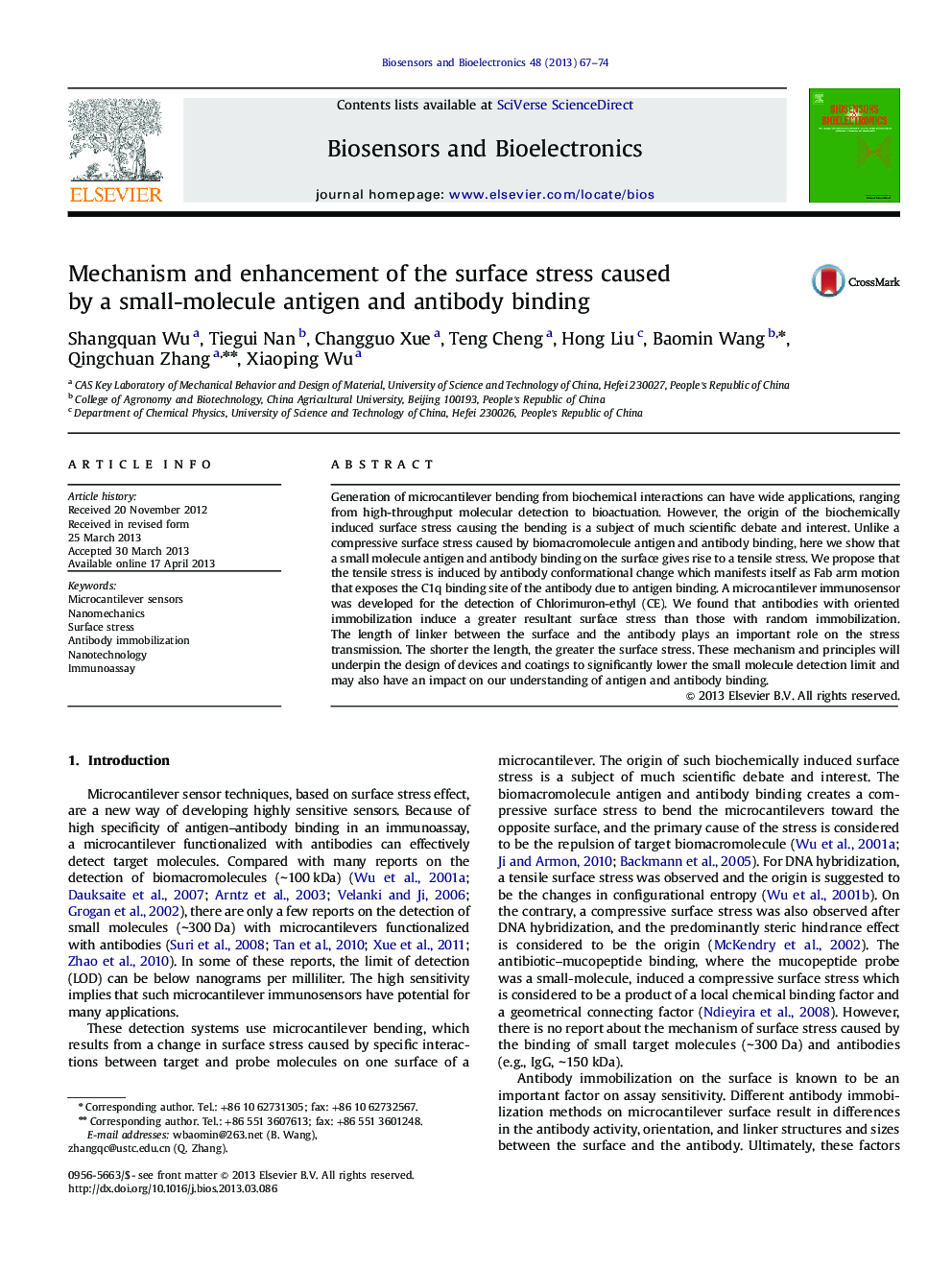| کد مقاله | کد نشریه | سال انتشار | مقاله انگلیسی | نسخه تمام متن |
|---|---|---|---|---|
| 7233869 | 1470983 | 2013 | 8 صفحه PDF | دانلود رایگان |
عنوان انگلیسی مقاله ISI
Mechanism and enhancement of the surface stress caused by a small-molecule antigen and antibody binding
ترجمه فارسی عنوان
مکانیسم و افزایش تنش سطحی ناشی از اتصال آنتی ژن مولکولی کوچک و آنتی بادی
دانلود مقاله + سفارش ترجمه
دانلود مقاله ISI انگلیسی
رایگان برای ایرانیان
کلمات کلیدی
موضوعات مرتبط
مهندسی و علوم پایه
شیمی
شیمی آنالیزی یا شیمی تجزیه
چکیده انگلیسی
Generation of microcantilever bending from biochemical interactions can have wide applications, ranging from high-throughput molecular detection to bioactuation. However, the origin of the biochemically induced surface stress causing the bending is a subject of much scientific debate and interest. Unlike a compressive surface stress caused by biomacromolecule antigen and antibody binding, here we show that a small molecule antigen and antibody binding on the surface gives rise to a tensile stress. We propose that the tensile stress is induced by antibody conformational change which manifests itself as Fab arm motion that exposes the C1q binding site of the antibody due to antigen binding. A microcantilever immunosensor was developed for the detection of Chlorimuron-ethyl (CE). We found that antibodies with oriented immobilization induce a greater resultant surface stress than those with random immobilization. The length of linker between the surface and the antibody plays an important role on the stress transmission. The shorter the length, the greater the surface stress. These mechanism and principles will underpin the design of devices and coatings to significantly lower the small molecule detection limit and may also have an impact on our understanding of antigen and antibody binding.
ناشر
Database: Elsevier - ScienceDirect (ساینس دایرکت)
Journal: Biosensors and Bioelectronics - Volume 48, 15 October 2013, Pages 67-74
Journal: Biosensors and Bioelectronics - Volume 48, 15 October 2013, Pages 67-74
نویسندگان
Shangquan Wu, Tiegui Nan, Changguo Xue, Teng Cheng, Hong Liu, Baomin Wang, Qingchuan Zhang, Xiaoping Wu,
